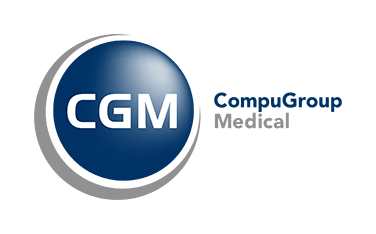When it comes to clean claims and speedy reimbursements, choosing a leading medical clearinghouse is a must. Find out what to look for and narrow your search.
The landscape of medical claims reimbursements is greatly complicated by the fact that there are several million licensed healthcare professionals across the United States (each using different claims software) who send medical claims to more than 4,000 different insurance carriers every day. Further complicating matters, each state has its own insurance regulations, and each carrier has its own internal software infrastructure.
With all of this, it's no surprise that healthcare organizations find it particularly challenging to receive reimbursements from insurance payers.
Organizations that submit claims to payers directly instead of using a medical claims clearinghouse find that the leading cause for their claim rejections is human error (mistakes, typos, omissions, and the like). The chance for errors increases exponentially when claims are submitted manually, because the data must be re-keyed for each new medical claim.
The process for manually entering claims is complicated, time consuming, and unnecessarily repetitive. Wasted time is wasted money.
When it's time to improve your practice's revenue cycle by choosing a medical clearinghouse, how do you distinguish a “good” one from a bad one?
eMEDIX Reimbursement Solutions allows providers to process claims in real time, delivering one of the fastest turnaround times in the industry.
What is a medical clearinghouse?
Clearinghouses bridge the gap between providers and insurance payers; they offer an essential service to ensure a smooth revenue cycle: processing claims information securely.
Clearinghouses send and receive mountains of electronic claims information. By checking each medical claim for errors, clearinghouses ensure that the payer will correctly process each claim. Once they've established clean claims (also called claims editing or scrubbing), they send the claims and any associated medical records electronically to all appropriate medical organizations.
Because of its vital role in securing reimbursements for your healthcare practice, choosing an efficient medical clearinghouse is paramount. The faster and more accurately a clearinghouse processes and returns your information, the faster you will be paid, and the more payments you will collect.
What are some must-haves you should look for when choosing a medical clearinghouse?
Proven expertise in the healthcare industry
Choosing a medical claims clearinghouse means contracting with an organization that expertly understands claim routing and processing. Your internal claims processing team may not be able to dedicate all the time and energy needed in order to learn all of the ins and outs of medical claims and revenue cycle management.
A quality clearinghouse enables a seamless data exchange between you and your provider networks. This speeds up the claims process, reduces your denial rates, and increases the cash flow of your healthcare practice.
Quality communication with your medical practice
Choose a medical claims clearinghouse that quickly resolves problems with streamlined communication. This will result in faster payments and fewer denials.
Waiting multiple days for an issue to be resolved leads to payment delays and unnecessary costs. A medical clearinghouse should be your most important resource for any questions or issues that you experience regarding a claim.
How can you tell if a medical clearinghouse will be a high-quality communication advocate?
- The medical clearinghouse should know what questions to ask, which forms you need to file, and how to properly dispute claims discrepancies
- Do some research; see who others in the industry recommend or read customer experience reviews
- Verify that the support teams are appropriately trained and staffed in-house
Quick, accurate, and actionable medical claims information
After you submit a claim to your medical clearinghouse, you need to be able to access accurate and actionable claims information quickly so that you can distribute it across all workflows and staff from one concise platform and service. With this, payments can be processed within days and denials and disputes can be resolved more quickly.
To ensure that sensitive health information is both accurate and secure, medical claims clearinghouses scrub the data on each claim after they have been processed through their claims software.
After processing, the claims software creates an 837 file (the electronic medical claim file). A claim goes through the quality control process as they check for errors, inconsistent data elements, and ensures that everything is accurate before sending it on to the medical billing clearinghouse account.
An easy-to-work-with medical clearinghouse
Choose a medical clearinghouse with easy-to-use features such as human-readable claim responses and 835 files.
Efficient workflows save time by maximizing your healthcare practice's potential. The more straightforward the technology, the more quickly your staff can be trained on it.
Having a claims management platform that is not only customizable, but that limits the number of clicks required to process your workflow allows your staff to allocate their time and resources where they're needed.
Compliance and quality control
So, what does it mean for an organization to be "in compliance" or to be a compliant entity?
Compliant entities—such as healthcare providers, health plans, and healthcare/medical claims clearinghouses—must comply with national HIPAA requirements that protect the security and privacy of sensitive patient health information. This also means that any business that partners with a compliant entity, such as a healthcare clearinghouse, will also need to comply with the HIPAA guidelines and regulations so that patient data stays secure throughout the entire reimbursement process.
Not only will a medical clearinghouse ensure that your data stays compliant and secure, but they will complete checks for quality control during the process. Such checks include code or provider discrepancies, ensuring that patient data is correct, eliminating duplicate or incorrect codes, and more.
When quality control is prioritized, the likelihood of discharged or denied claims decreases. This is critical to keeping workflows streamlined and efficient.
Are you interested in maximizing your practice's revenue by partnering with an expert claims clearinghouse? Contact us today.

